Politics
/ArcaMax
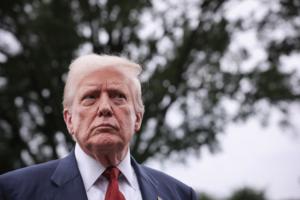
Commentary: The battle over truth -- Trump, data, and the fight for reality
I. The battle over facts
When Donald Trump fired Dr. Kristine Joy Suh, head of the Bureau of Labor Statistics, after a disappointing July jobs report, it wasn’t merely a personnel decision—it was a sharp break with precedent.
Suh’s removal upended decades of tradition in which BLS commissioners, regardless of who appointed them, were ...Read more
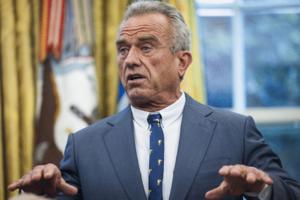
Editorial: Saving lives no more -- RFK risks us all in targeting mRNA vaccine research
Showing that his loyalty to his own anti-vax mentality is greater than his loyalty to President Donald Trump, Robert F. Kennedy Jr., the dangerous quack atop the Department of Health and Human Services, has announced that he will be rescinding a half billion dollars in grants and contracts for the development of mRNA technology and vaccines.
...Read more

Marc Champion: Israel is heading toward an isolation it can't afford
How on earth did Israel get to this point, and how can it escape? These two questions seem unavoidable after Israeli Prime Minister Benjamin Netanyahu gave his response to months of criticism and outrage over his conduct of the war in Gaza. It was, in a nutshell, more war.
It’s important to recall that Israel experienced a moment of ...Read more

Martin Schram: Gaza's real silent witnesses
We live in a world that is being victimized by more than just the misdeeds of its evildoers.
As we watch the shattering of buildings and humanity in Gaza, we cannot help but feel that we are also being done in by the willful do-nothingness of morally deficient leaders.
Today, we’ll be focusing on a full range of world leadership and ...Read more

David Mills: How to deal with the trolls
The poor guy got slapped around pretty badly, for the mistake of having an opinion some of his readers didn’t like. He got it in the comments section and he got it on his Facebook and Twitter pages.
He wrote me a discouraged letter. He wanted to know the trick for dealing with it. Here’s the note I sent him, a little revised, in case anyone...Read more

Commentary: Gaza's starvation is America's shame
Early in my foreign affairs career, I mostly avoided working on Israel and Palestine. The issues were fraught with emotion. I didn’t think I understood it well enough to have an informed position.
I believe the same sentiment that led me to avoid the topic before is what shapes many reactions (or nonreactions) to this conflict today.
But we ...Read more

POINT: How summer vacation became a burden, not a break
Contrary to a widely held perception, public school summer vacations are not getting shorter. And that’s a shame.
Despite some movement toward “balanced schedules” that include more breaks during the school year, summer vacations still average 10 weeks, unchanged from 20 years ago. Trimming back this mind-numbing break would improve our ...Read more
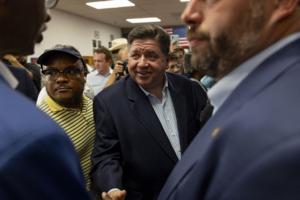
Commentary: Once again, politicians are choosing their voters. It's time for voters to choose back
Once again, politicians are trying to choose their voters to guarantee their own victories before the first ballot is cast.
In the latest round of redistricting wars, Texas Republicans are attempting a rare mid-decade redistricting to boost their advantage ahead of the 2026 midterms, and Democratic governors in California and New York are ...Read more
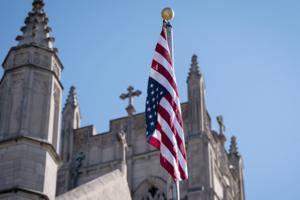
Editorial: God does not gerrymander
“What we’re fighting for is democracy,” Texas state Rep. Barbara Gervin-Hawkins said Sunday.
She didn’t say this at a news conference or in a committee hearing or a TV interview. She spoke the words in a Chicago church, with the blessing of Father Michael Pfleger who heads St. Sabina on the South Side of the city.
Can a house of ...Read more

Editorial: Poll shows some voters open to Social Security reform
The Social Security Trust Fund is less than a decade away from insolvency thanks to congressional and presidential inertia. The 90-year-old retirement program is so popular that the vast majority of politicians prefer to tolerate the deteriorating status quo rather than jeopardize their political futures by insisting on reforms.
Yet the program...Read more

Commentary: Executive order to institutionalize homeless people defies data
President Donald Trump’s campaign against homeless people is not limited to the District of Columbia. On July 24, Trump issued an executive order titled “Ending Crime and Disorder on America’s Streets.” How exactly is that to be accomplished?
“Shifting homeless individuals into long-term institutional settings for humane treatment ...Read more

COUNTERPOINT: Save the summer break
Who can forget George Gershwin’s memorable song “Summertime and the Living is Easy”? Summers meant picnics in the park, vacations, camping, lounging at the pool, jumping in the lake, and reading favorite books.
That was then, this is now.
Now, we have children attending academically focused summer programs or athletic camps designed to ...Read more
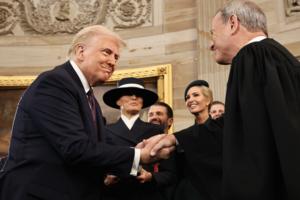
Commentary: Trump isn't the main villain in Texas' gerrymander scheme
If you want someone to blame for the recent crisis caused by President Trump’s rush to force a gerrymander of Texas’ congressional districts, and the harried responses from governors in California, Illinois and New York, you can start with the Supreme Court.
In 2019, in Rucho vs. Common Cause, the group held, 5 to 4, that challenges to ...Read more
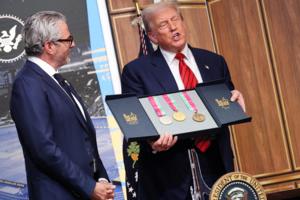
Gustavo Arellano: LA never needed the Olympics. With Trump wanting in, it's time to pull out
Los Angeles just can't get a break.
The latest embarrassment is LA28 chair Casey Wasserman, the man tasked with making sure the 2028 Summer Olympics are a massive success. At a news conference this week announcing that President Donald Trump will head a federal Olympics task force, Wasserman offered L.A. a giant whoopie cushion.
With Wasserman...Read more
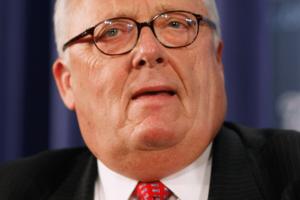
Commentary: The Heritage Foundation founder's legacy is complicated
Edwin Feulner, the founder and longtime president of the Heritage Foundation, died last month. He will be remembered as one of the most consequential visionary leaders in modern conservatism. He will also be remembered as the person, more than anyone else, responsible for the Republican Party’s turn away from truth, expertise and good ...Read more

Leonard Greene: Hochul helps in redistricting fight against Texas-sized power grab
Texas officials didn’t have a problem sending thousands of migrants to New York, a sanctuary state, when the desperate asylum seekers illegally crossed the southern border.
They sent them here by the busloads.
But now, when a few of its lawmakers come to New York seeking sanctuary from an onerous redistricting vote, Texas leaders want to sic...Read more

Commentary: AI companions are harming your children
Right now, something in your home may be talking to your child about sex, self-harm, and suicide. That something isn’t a person—it’s an AI companion chatbot.
These AI chatbots can be indistinguishable from online human relationships. They retain past conversations, initiate personalized messages, share photos, and even make voice calls. ...Read more
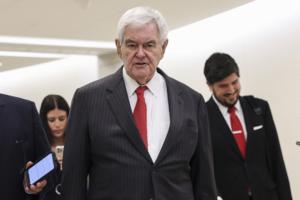
Commentary: Democrats need a creative approach to the midterm elections
Let’s face it. The Democratic Party is in disarray. It will not win the 2026 congressional midterm elections if it limits its message to condemning President Donald Trump. And it will not win the 2026 elections if the party is seen as a cesspool of bickering and disagreement.
Americans are fed up with the inability of Congress to act, and ...Read more

Editorial: The 401(k) needs better guardrails
Tax-advantaged employer-sponsored retirement savings accounts hit a milestone not long ago: At least half of all private sector U.S. workers now participate in a 401(k).
That is good news in this respect: The alternative of not saving money for retirement could prove crushing. Finance experts have long cautioned against relying solely on ...Read more
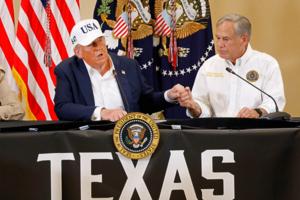
Editorial: Count 'em all -- Trump has no authority to muck with 2030 Census Bureau count
Not caring about the U.S. Constitution is a regular refrain for President Donald Trump, who now wants to exclude undocumented people from the 2030 census count — a nonstarter as much else is in this bizarro world we now inhabit, promulgated via a screed on his Truth Social platform — is both a terrible idea and certainly a rehash.
Trump ...Read more























































